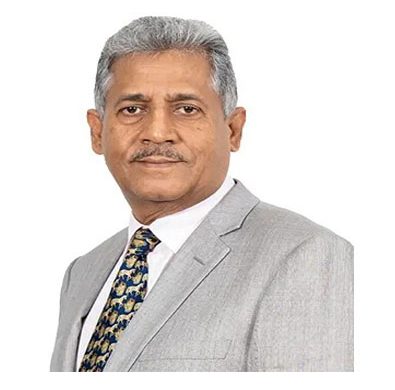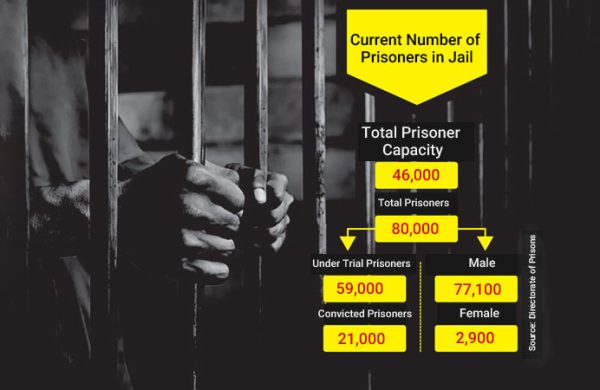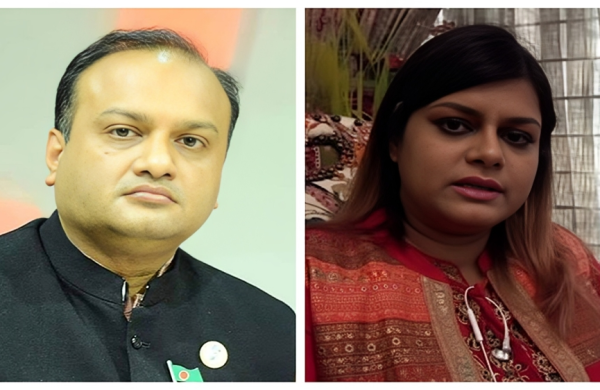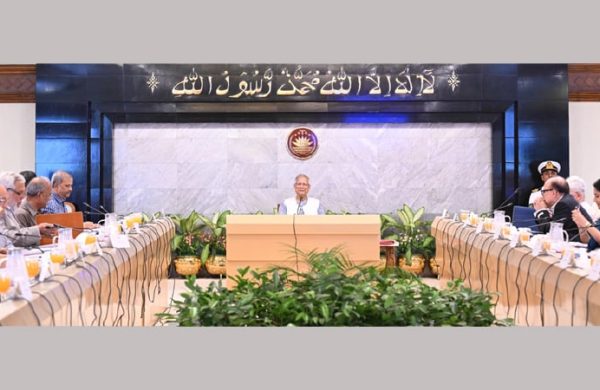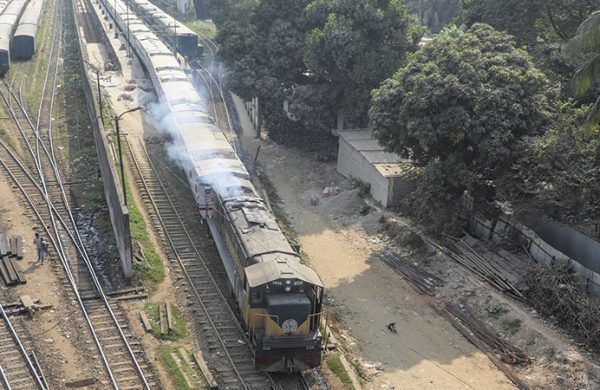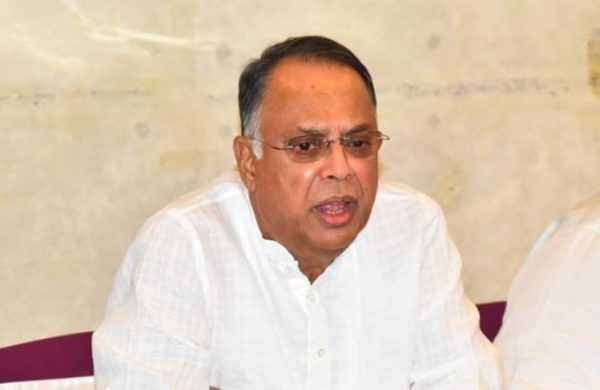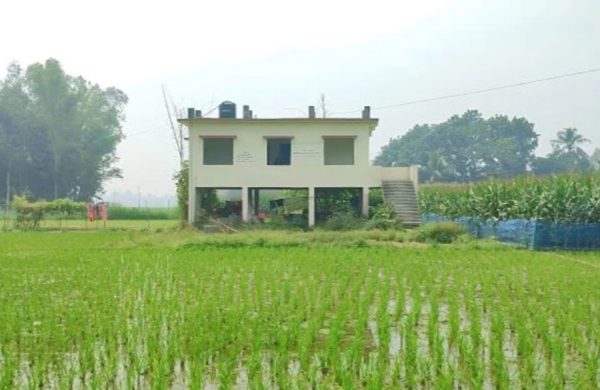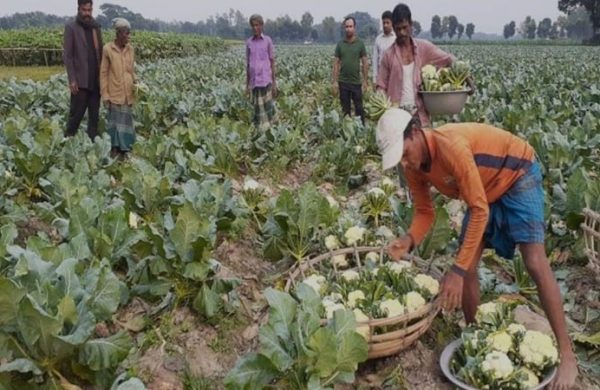Rooppur Power Plant: Russia wants $630m interest paid by 15 Sep
- Update Time : Wednesday, September 11, 2024
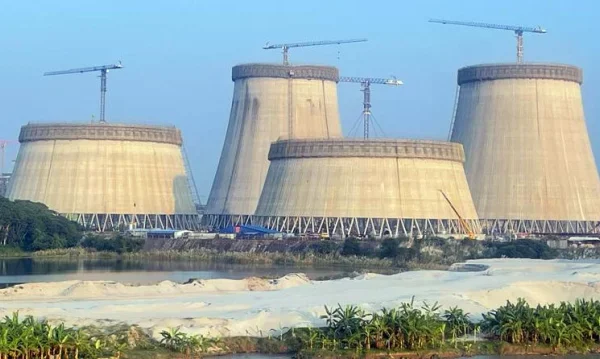
TDS Desk:
Russia has asked Bangladesh to pay $630 million in outstanding and current interests on a loan for the Rooppur Nuclear Power Plant by 15 September, according to a letter from the Russian authorities.
The letter follows Bangladesh’s June request for alternative transaction methods to settle overdue interests, commitment fees and late fines caused by US sanctions on Russian banks.
The $12.65 billion loan carries a maximum interest rate of 4%, with an additional penalty interest rate of 2.4% for overdue payments.
In the letter to the Economic Relations Division (ERD) dated 21 August, VEB.RF – a major financial development institution and the Russian government’s representative agency – requested that the outstanding payments be made in either US dollars or Chinese yuan and deposited to the Bank of China’s Shanghai branch.
However, since the payment deadline of 15 September falls on a Sunday and 16 and 17 September are non-business days in China, the earliest possible payment date would be 18 September.
Finance ministry sources said missing this deadline could result in additional penalties and further complications, including potential delays in negotiating a two-year extension of the loan disbursement term – which is set to expire this coming December – that Bangladesh is currently pursuing.
Previously, Bangladesh proposed that instead of collecting the dues, Russia could invest the funds in new projects, the stock market, or purchase goods from Bangladesh. However, the Russian letter indicates that this option is unlikely.
Russia also rejected Bangladesh’s request to defer principal repayment, scheduled to begin in March 2027, until March 2029. Initially, Russia had agreed to the extension, according to ministry officials.
Officials told that despite having the funds ready for interest payments, Bangladesh could not transfer the payment due to issues with the payment channel and currency caused by US sanctions on Russian banks.
Dhaka made regular interest payments until the Russia-Ukraine war and US sanctions on Russian banks made payments unfeasible, leading to accrued interest and penalty charges.
An official from Sonali Bank, which manages loan transactions with Russia for the Bangladesh government, told that although the funds were deposited to an escrow account at the Bangladesh Bank, sanctions have prevented direct payments to Russia.
According to the VEB.RF letter, Bangladesh owes $480 million in interest and penalty charges for the period from 15 March 2022 to 15 March 2024. Additionally, $150 million in interest is due for the period from 16 March to 15 September 2024. Bangladesh must also pay a commitment fee of $750,000.
ERD officials said the Ministry of Foreign Affairs is currently in talks with the Russian authorities to settle this payment issue. A meeting on this matter took place on 2 September, attended by representatives from various government agencies.
An ERD official, on condition of anonymity, told that failure to pay the due interest could result in the loan being frozen, which means that Russia may not disburse the rest of the loan amount.
As of 14 August, Moscow has disbursed $7.33 billion out of the $12.65 billion in 25 instalments. In June, the government requested a two-year extension for disbursement of the remaining amount, until December 2026.
The ERD official said the loan agreement, signed in 2016, expires in December 2024. Failure to pay interest may lead Russia to delay extending the loan term for disbursement.
On 26 July 2016, the loan agreement between the governments of Russia and Bangladesh was signed, with Moscow beginning disbursements in 2017. As per the agreement, interest on the loan is to be paid semi-annually following each disbursement.
The total estimated cost of the country’s maiden nuclear plant project is $12.65 billion, with 90% of the funding provided through a loan by the Russian government, and the remaining 10% financed by the Bangladesh government.
The payment issue raises concern amid the project’s slow progress, particularly the construction of the transmission line, which has lagged behind schedule. Stakeholders believe that without this transmission infrastructure, the power plant cannot begin operations as planned.
There are plans to start generating electricity from one of the plant’s units by December, but this timeline may be jeopardised if the transmission lines are not completed.
As a result, the Bangladesh government is seeking an extension on the borrowing term but the Russian side has not yet made a decision on this request.
Project Director Md Zahedul Hasan told that the borrowing and repayment terms of the project are part of an agreement between the governments of Bangladesh and Russia, and are not directly related to the project itself.
He referred further inquiries on the matter to the ERD.


